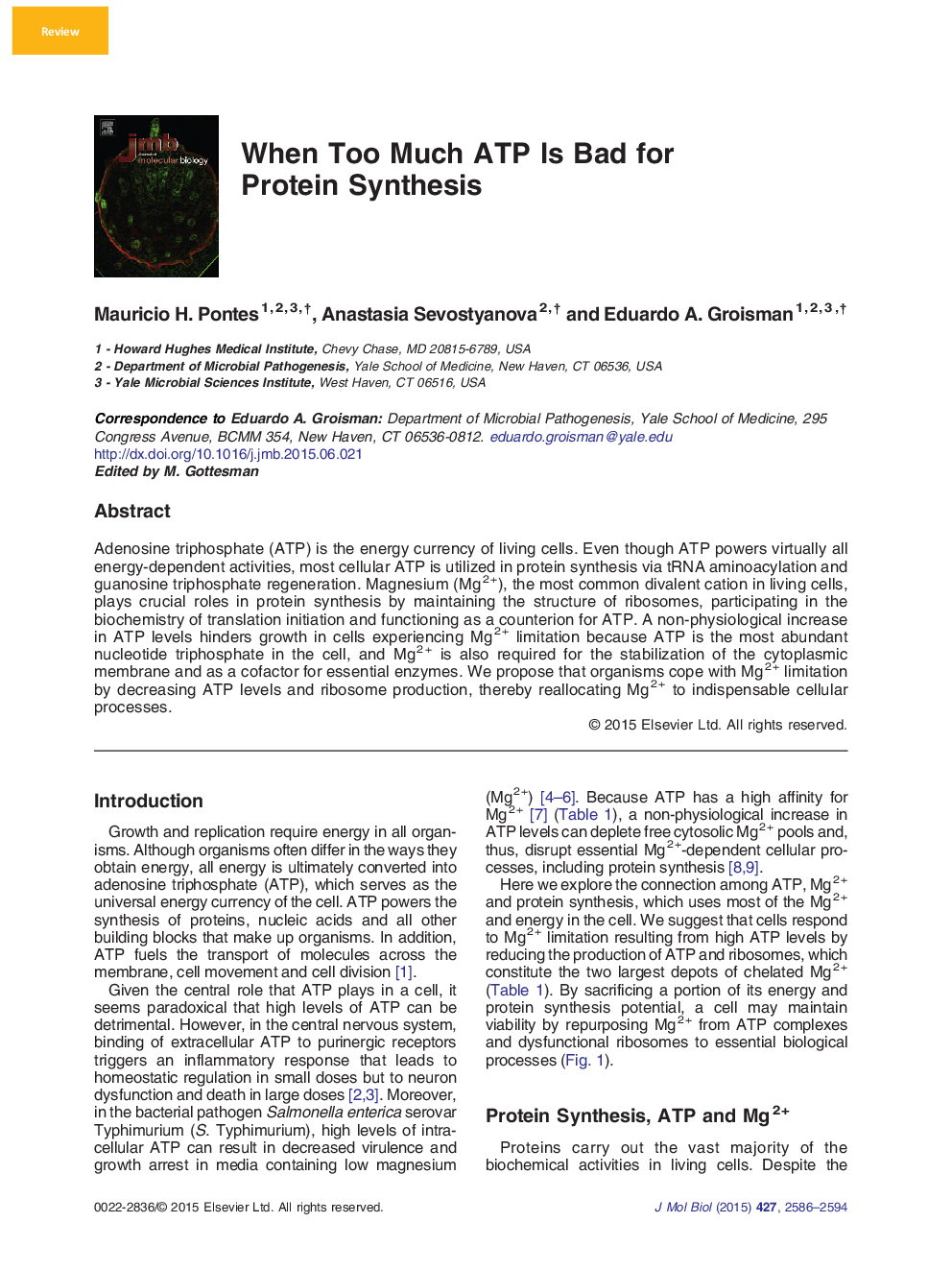| کد مقاله | کد نشریه | سال انتشار | مقاله انگلیسی | نسخه تمام متن |
|---|---|---|---|---|
| 2184284 | 1095822 | 2015 | 9 صفحه PDF | دانلود رایگان |

• Cell's energy and protein synthesis potentials depend on the availability of Mg2 +.
• Bacteria sense and respond to various degrees of Mg2 + limitation.
• Non-physiological increase in ATP disrupts essential Mg2 +-dependent processes.
• Cell restores free Mg2 + levels by shutting down synthesis of ATP and ribosomes.
Adenosine triphosphate (ATP) is the energy currency of living cells. Even though ATP powers virtually all energy-dependent activities, most cellular ATP is utilized in protein synthesis via tRNA aminoacylation and guanosine triphosphate regeneration. Magnesium (Mg2 +), the most common divalent cation in living cells, plays crucial roles in protein synthesis by maintaining the structure of ribosomes, participating in the biochemistry of translation initiation and functioning as a counterion for ATP. A non-physiological increase in ATP levels hinders growth in cells experiencing Mg2 + limitation because ATP is the most abundant nucleotide triphosphate in the cell, and Mg2 + is also required for the stabilization of the cytoplasmic membrane and as a cofactor for essential enzymes. We propose that organisms cope with Mg2 + limitation by decreasing ATP levels and ribosome production, thereby reallocating Mg2 + to indispensable cellular processes.
Graphical AbstractFigure optionsDownload high-quality image (185 K)Download as PowerPoint slide
Journal: Journal of Molecular Biology - Volume 427, Issue 16, 14 August 2015, Pages 2586–2594